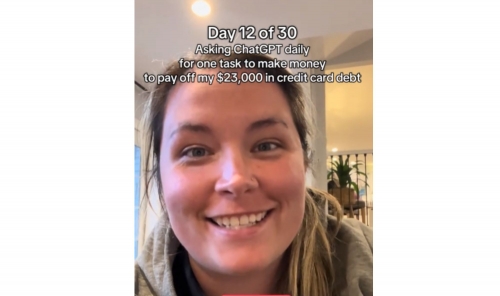30 Days, One AI, and $12K Paid Off—Her Debt-Free Journey Goes Viral
TDT | Manama
Email : editor@newsofbahrain.com
A woman in the United States has gained widespread attention for successfully reducing a significant portion of her credit card debt — by turning to artificial intelligence for support and structure.
Jennifer Allan, a 35-year-old realtor and content creator from Delaware, turned to AI tools to help manage her personal finances after years of struggling with debt. Faced with mounting bills and poor financial habits, Allan decided to document a 30-day challenge on TikTok, during which she used AI to guide her daily actions aimed at debt repayment.
Throughout the month, she explored creative money-saving tips, side hustles, and budgeting techniques suggested by AI. The process included tracking spending, cancelling unnecessary subscriptions, selling items online, and organizing meals using only existing pantry supplies.
A key moment in her journey came when she discovered unused financial resources, including an old brokerage account and cash in finance apps she had overlooked — all brought to her attention through AI-driven prompts. These steps significantly boosted her ability to pay off a large chunk of her debt.
By the end of the challenge, Allan had paid off over $12,000 of her credit card balance. She has since started a second 30-day round, aiming to eliminate the remainder of her debt.
Reflecting on the experience, she emphasized that the transformation wasn’t due to a financial loophole, but rather the mindset shift that came from confronting her finances head-on. She credits the daily discipline, transparency, and public accountability for empowering her to take control of her situation.
Her story has resonated with millions online, particularly at a time when household debt in the US continues to rise. According to the Federal Reserve Bank of New York, total household debt reached $18.2 trillion in the first quarter of 2025.
Allan’s story stands out as an example of how emerging technologies, when used with consistency and intent, can support personal growth and financial responsibility.
Related Posts

